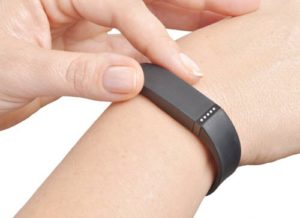 Free Consultation
(610) 667-7511
Free Consultation
(610) 667-7511
 Free Consultation
(610) 667-7511
Free Consultation
(610) 667-7511

Will Fitbit data start showing up in Court? Signs point to yes.
A lot of people wear some sort of fitness tracking device or use their smart phones to track their physical activity. That information can potentially be used in both criminal and civil court to help or hurt your case.
It is no surprise that Fitbit is being used in criminal case. It so happens, one case happened right here in Lancaster, Pennsylvania. In March, 2015, a woman claimed that she was raped while sleeping. The woman stated that the tracking device she wore had been lost in the struggle, but police were able to locate it. The alleged victim turned over her username and password. When the police looked at her activity history, they were able to see that the complainant was not asleep, but walking around during the time she claimed she was attacked. The police also found further incriminating evidence. As a result, charges were filed against the woman for filing a false report and creating a false scene at the house (she turned over furniture.) There was no evidence she was raped.
A tracking device, can be either helpful or harmful in a personal injury claim. If a plaintiff states that she used to be very active and can produce Fitbit records that backup what she claims, such evidence can assist in proving that she lead a very active lifestyle. On the other hand, the reverse is also true. If someone is injured but a movement tracking device shows that she is still extremely active, the records can show the person is being dishonest about the extent of her injury. And of course, if the person wore a device before her injury and it showed she was a couch potato when she claimed otherwise, again, the jury will be able to see that she was dishonest about her physical status. In the only civil case on record, filed in Canada, a personal trainer did not share the data itself, but used an analytics program to compare past activity to current activity.
Is using a tracking device in civil court a good idea? Is the use of such data a violation of privacy? Gizmodo thinks use of Fitbit in court is a bad idea due to the privacy risks.
At this point, we don’t know the answer here in the United States as far as use of data in a civil case. Keep this in mind. Health tracking devices contain an immense amount of data. They show where you were at certain times. They show whether you were active or sedentary. If you are hanging out with someone else who has a Fitbit, it is possible to see that you were close to another person. Won’t that be interesting for divorce cases? Over the next few years, it will be interesting to see what happens.
LOWENTHAL AND ABRAMS, P.C.

Contact us for a FREE consultation. No fee unless compensated.